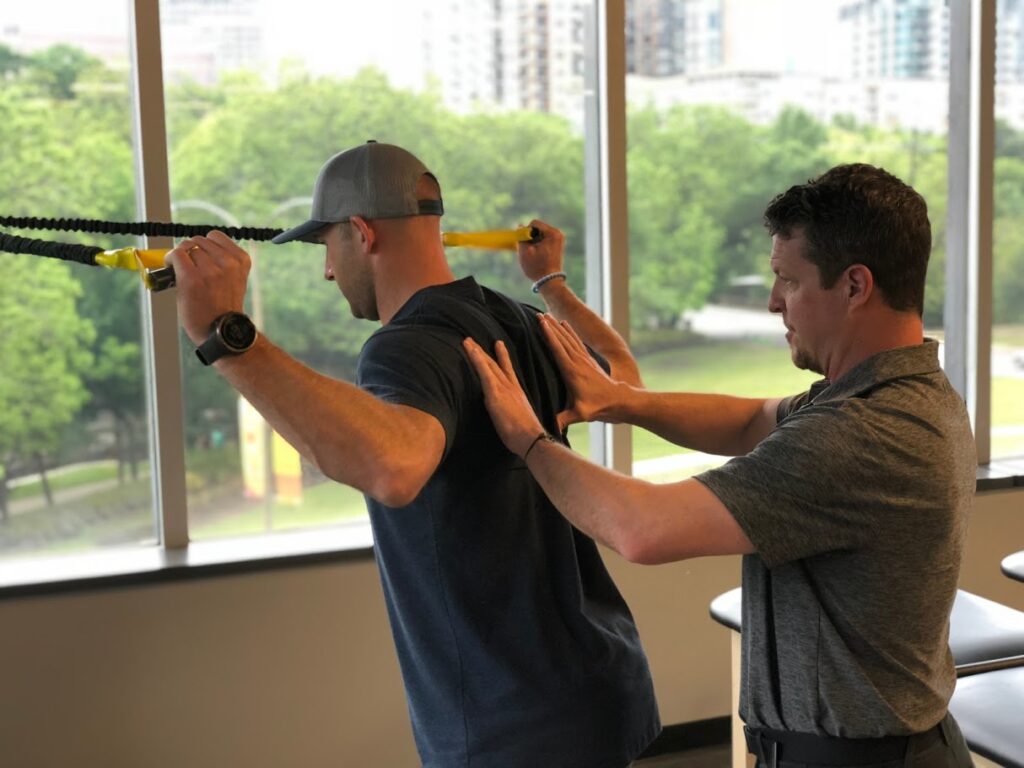IFPA Tai Chi Instructor Certification Review (2025)
Read this IFPA Tai Chi Instructor Certification Review to decide if the IFPA Tai Chi Instructor Certification is worth it and what the best personal training certification is for you.

If you have a passion for Tai Chi and want to share its benefits with others, becoming an IFPA Tai Chi Instructor can be a rewarding and fulfilling career choice. In this article, we will explore what Tai Chi is, the process of becoming an IFPA Tai Chi Instructor, the benefits of practicing and teaching Tai Chi, techniques for teaching Tai Chi, Tai Chi certification cost, how to find the best Tai Chi certification online, how to build a successful Tai Chi instruction business, the importance of continuing education and professional development, and the future of Tai Chi instruction.
Discover the benefits of becoming an IFPA Tai Chi Instructor and decide if the IFPA Tai Chi Instructor Certification is a good Tai Chi certification for you. Whether you want to learn how to become a personal trainer, or learn how to become a fitness influencer, or learn how to open a gym, or learn how to start a fitness business, or anything in between, use the Exercise.com platform to accomplish your fitness business goals.

You can start an online personal training business, make a fitness app, learn how to make money selling workout plans online, put in-person personal training marketing ideas into action, use personal training income ideas to find personal trainer career options that will put you on track for the highest paying fitness jobs, and many other ways to make money from fitness doing what you love.
With the Exercise.com platform you have the best martial arts studio software, the best online fitness coaching software and the best software for fitness influencers all in one! (Not to mention the best gym software and the best personal training software).
Create workout plans.

Manage clients.


Run online fitness challenges.
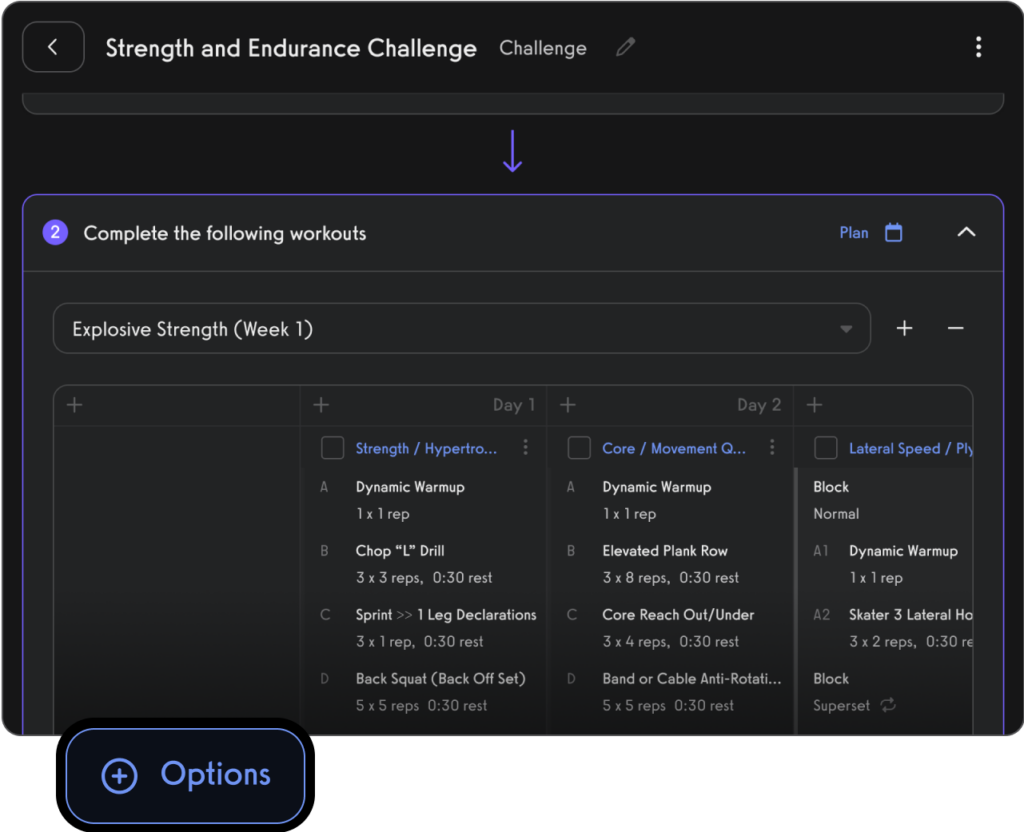
Create and sell fitness memberships, products, and digital offers.

Manage, message, and market to your online personal training clients and leads.
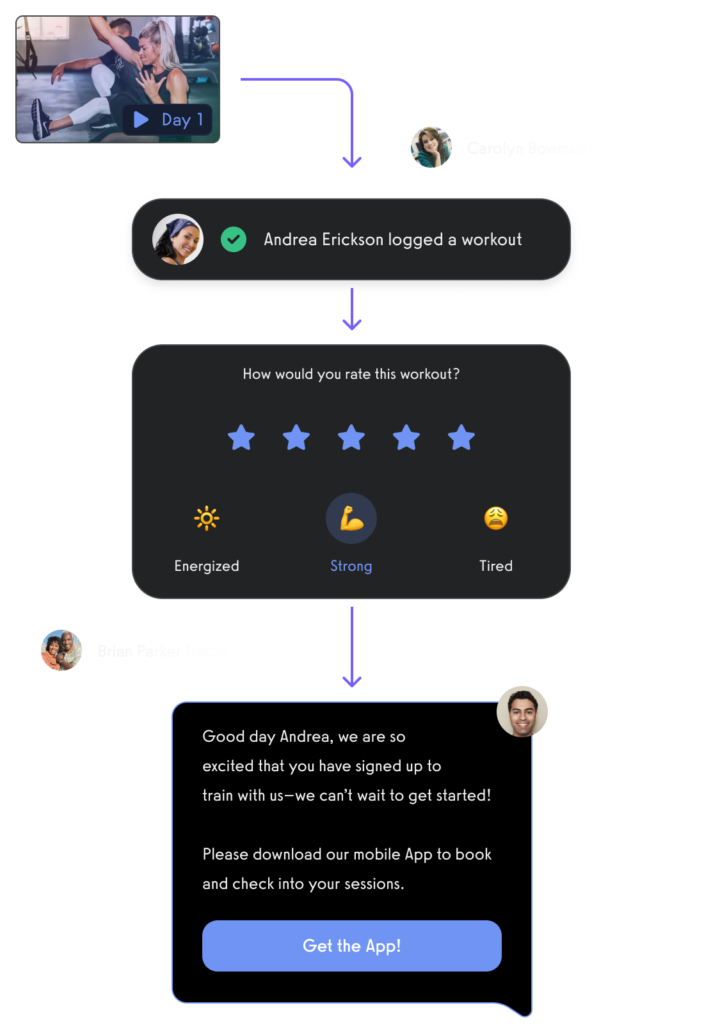
All from your very own custom branded fitness apps.

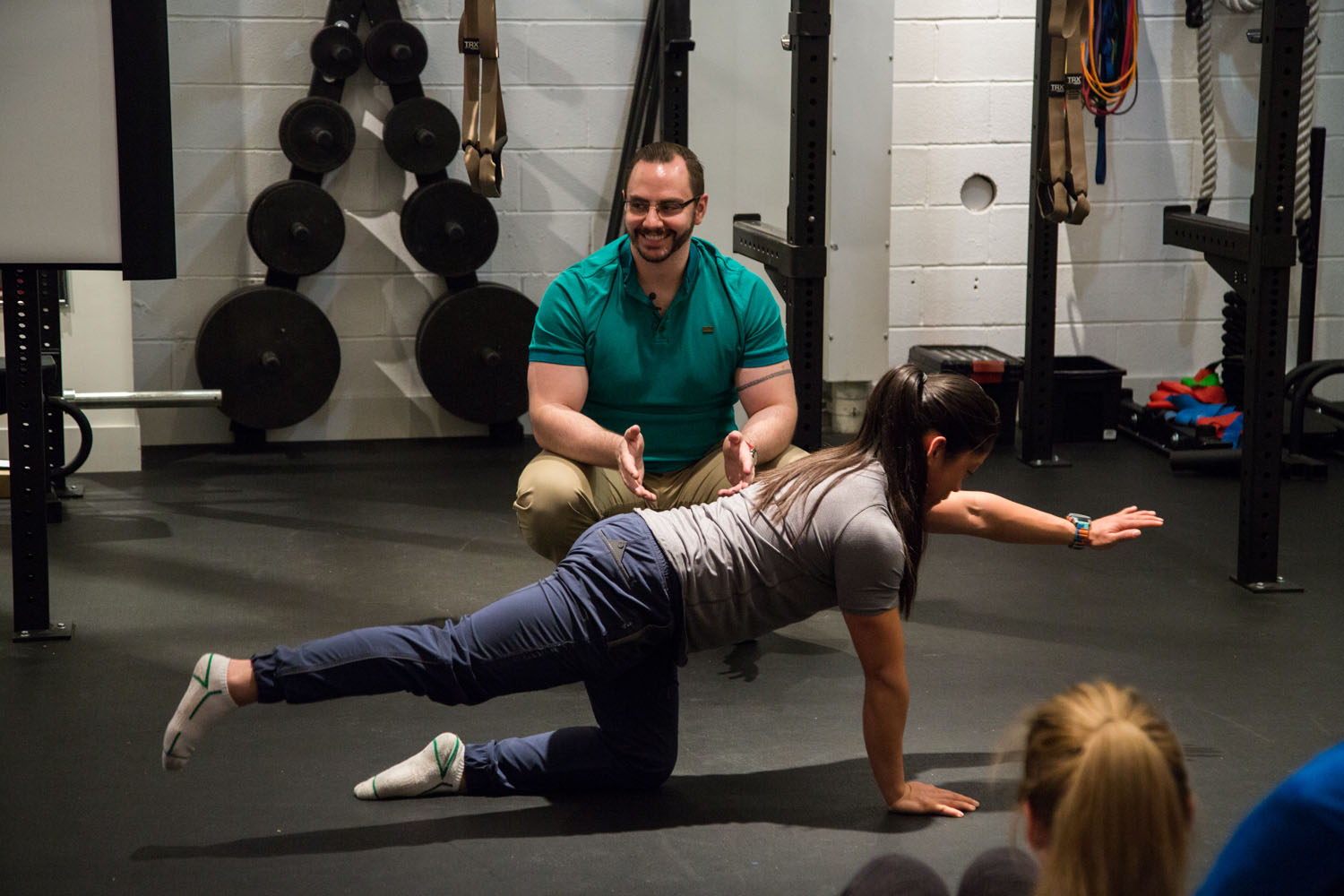
IFPA Tai Chi Instructor Certification
The IFPA Tai Chi Instructor Certification is specifically designed for fitness and wellness professionals who wish to incorporate the ancient practice of Tai Chi into their offerings. This certification, offered by the International Fitness Professionals Association (IFPA), delves into the principles, movements, and philosophies of Tai Chi, emphasizing its benefits for balance, flexibility, stress reduction, and overall well-being.
- Ideal for personal trainers, group fitness instructors, and wellness coaches seeking to broaden their skill set with Tai Chi, a mind-body practice known for its gentle, flowing movements.
- The curriculum covers Tai Chi history, fundamental movements, sequence choreography, and the integration of Tai Chi principles into fitness and wellness programs.
- Participants will gain both theoretical insights and practical skills through comprehensive study materials, hands-on workshops, and a certification examination, ensuring proficiency in teaching Tai Chi.
- Graduates are equipped to lead Tai Chi classes for diverse populations, promoting mindfulness, physical health, and mental tranquility.
IFPA Credibility and Reputation
The IFPA is recognized for its high standards in fitness education and certifications, and the Tai Chi Instructor Certification upholds this tradition of excellence, ensuring that certified professionals are acknowledged as knowledgeable and skilled Tai Chi instructors.
- Known for its commitment to evidence-based practices and professional development.
- The certification is respected within the fitness and wellness communities, enhancing the employability and credibility of certified instructors in various settings, including fitness centers, wellness retreats, and community centers.
- IFPA provides ongoing support, including access to continuing education and a network of fitness professionals, fostering an environment of lifelong learning and mastery in Tai Chi instruction.
Achieving the IFPA Tai Chi Instructor Certification signifies a professional’s expertise in Tai Chi, setting them apart as qualified instructors capable of enhancing the well-being of their clients through this graceful and meditative practice.
IFPA vs Other Top Tai Chi Instructor Certifications
When comparing the IFPA Tai Chi Instructor Certification to other Tai Chi teaching programs, it’s essential to consider the depth of the training content, the focus on practical application, and the overall industry recognition of the certification:
- IFPA Tai Chi Instructor Certification: Offers a comprehensive exploration of Tai Chi, focusing on the integration of Tai Chi into fitness and wellness programs, suitable for instructors seeking to offer Tai Chi classes in diverse settings.
- Other Tai Chi Instructor Programs: May emphasize traditional Tai Chi forms, lineage, and philosophical aspects, targeting individuals aiming to teach Tai Chi in more traditional or martial arts-focused contexts.
- IFPA’s certification provides a well-rounded curriculum that prepares instructors for a wide range of Tai Chi teaching scenarios, making it a versatile choice for fitness and wellness professionals.
- Certified professionals gain access to IFPA’s extensive educational resources and professional development opportunities, ensuring they are equipped to lead successful Tai Chi classes.
- The certification empowers fitness professionals to offer Tai Chi programs that enhance physical health, mental clarity, and emotional well-being, meeting the needs of a diverse clientele seeking a holistic approach to fitness.
Selecting the right Tai Chi instructor certification depends on your career goals, teaching philosophy, and the specific needs of your clientele. The IFPA certification offers a comprehensive and flexible approach to Tai Chi instruction, making it an excellent choice for those looking to integrate Tai Chi into their fitness and wellness offerings.
IFPA Cost
The investment in the IFPA Tai Chi Instructor Certification reflects the specialized nature of the training and the professional value it provides to fitness and wellness professionals. The cost includes access to detailed study materials, hands-on workshops, and the certification examination.
- The program fee covers comprehensive training materials and workshops designed to provide a thorough understanding of Tai Chi principles, movements, and teaching methodologies.
- Opportunities for early registration discounts or bundle pricing with other IFPA certifications may be available, offering additional value to the investment.
- The expertise gained through this certification can lead to enhanced career opportunities and income potential in the fitness and wellness industries, particularly for those specializing in mind-body practices like Tai Chi.
While the cost may be a significant consideration, the professional development and specialization provided by the IFPA Tai Chi Instructor Certification justify the investment for fitness and wellness professionals committed to enriching their practice with the holistic benefits of Tai Chi.
IFPA Tai Chi Instructor Exam Content
The IFPA Tai Chi Instructor Certification exam is structured to comprehensively assess a candidate’s understanding of Tai Chi principles, movements, and instructional techniques. Key areas covered in the exam include:
Tai Chi Principles and Philosophy
- In-depth knowledge of the foundational principles of Tai Chi, including Yin and Yang, the Five Elements, and the concept of Qi (energy), and how these principles inform Tai Chi practice.
- Understanding the historical and cultural context of Tai Chi and its development as a martial art and health practice.
Tai Chi Forms and Movements
- Proficiency in performing and teaching a variety of Tai Chi forms and movements, with attention to detail in posture, alignment, and fluidity to ensure the effectiveness and safety of the practice.
- Ability to modify Tai Chi movements to accommodate different fitness levels, abilities, and health conditions, making Tai Chi accessible to a wide range of participants.
Instructional Techniques and Class Design
- Skills in designing and leading Tai Chi classes that provide a balanced and holistic experience, incorporating warm-ups, Tai Chi forms, cool-downs, and meditation practices.
- Techniques for effectively communicating Tai Chi concepts and movements to students, fostering a supportive and engaging learning environment.
Successfully passing the certification exam demonstrates a fitness professional’s competency in Tai Chi instruction, equipping them with the credentials to design and lead safe, effective, and enriching Tai Chi classes.
IFPA Tai Chi Instructor Continuing Education and Recertification
To maintain the IFPA Tai Chi Instructor Certification, certified professionals are required to pursue ongoing professional development, ensuring they remain current with the latest advancements in Tai Chi practice and instruction:
- Continuing Education Units (CEUs): Certified instructors must accumulate a specified number of CEUs focused on Tai Chi, mind-body practices, or related subjects within each recertification cycle.
- Advanced Learning Opportunities: IFPA offers a range of advanced courses, workshops, and seminars that delve deeper into Tai Chi and related holistic health practices, providing avenues for instructors to further refine their expertise.
- Professional Commitment: Recertification and continuous education reflect an instructor’s dedication to their professional development and to delivering the highest quality Tai Chi instruction.
Engaging in continuous professional development is crucial for Tai Chi instructors to enhance their expertise, adapt to new teaching methodologies, and uphold the highest standards of practice in delivering comprehensive and authentic Tai Chi programs.
Other IFPA Offerings
In addition to the Tai Chi Instructor Certification, IFPA provides a broad spectrum of fitness and wellness certifications and educational opportunities that can complement an instructor’s expertise in Tai Chi:
- Specialty Certifications: Such as the Yoga Instructor Certification or Meditation Teacher Certification, allowing Tai Chi instructors to incorporate additional mind-body disciplines into their practice.
- Health and Wellness Certifications: Including the Nutrition Coach Certification or Wellness Coach Certification, equipping instructors with a holistic understanding of health and wellness to support their Tai Chi programs.
- Continuing Education Courses: Covering a variety of topics from the latest in mind-body fitness to holistic health approaches, supporting instructors in their ongoing professional development and innovation in Tai Chi instruction.
Exploring additional certifications and courses can enrich a Tai Chi instructor’s practice, offering a comprehensive approach to wellness that incorporates the latest scientific insights and methodologies in mind-body practices and beyond.
IFPA Tai Chi Instructor Certification Overall Rating
The IFPA Tai Chi Instructor Certification is an exceptional program for fitness and wellness professionals seeking to integrate the art and practice of Tai Chi into their offerings. It provides an in-depth exploration of Tai Chi principles, movements, and teaching methodologies, preparing instructors to lead Tai Chi classes that promote balance, flexibility, stress reduction, and overall well-being.
Pros
- Comprehensive training in Tai Chi principles and movements enhances instructors’ ability to offer authentic and effective Tai Chi classes.
- The credibility of an IFPA certification enhances professional opportunities and recognition within the fitness and wellness industries, distinguishing certified instructors as knowledgeable in Tai Chi.
- Access to ongoing educational resources and a supportive professional community fosters continuous learning and career development, ensuring instructors remain at the forefront of Tai Chi instruction.
Cons
- The certification requires a significant investment of time and financial resources, but the specialized expertise and professional benefits gained justify the cost and contribute to an instructor’s growth and success in the field.
- The focused nature of Tai Chi instruction may require additional certifications or qualifications to comprehensively address the broadest range of fitness and wellness disciplines and client needs.
Overall, the IFPA Tai Chi Instructor Certification is highly recommended for fitness and wellness professionals looking to enrich their practice with the holistic benefits of Tai Chi. It provides the advanced knowledge, skills, and credentials necessary to design and lead Tai Chi classes that improve physical health, mental clarity, and emotional well-being, contributing to the holistic health of participants.
Integrating Tai Chi instruction with the best personal training software can further enhance an instructor’s ability to manage classes, track participant progress, and deliver personalized and effective mind-body fitness solutions, ensuring a high-quality and enriching Tai Chi experience for clients seeking to incorporate this gentle and meditative practice into their wellness routines.
Tai Chi History
Tai Chi, also known as Tai Chi Chuan, is a traditional Chinese martial art that combines slow, flowing movements with deep breathing and meditation. It originated in ancient China and has been practiced for centuries as a form of exercise, self-defense, and a way to cultivate mind-body balance.
Tai Chi is based on the principles of Yin and Yang and the concept of Qi, or vital energy, flowing through the body. Practicing Tai Chi promotes relaxation, physical strength, flexibility, mental clarity, and emotional well-being.
When practicing Tai Chi, individuals engage in a series of graceful movements that are designed to flow seamlessly from one to another. These movements are often described as “moving meditation” because they require focus and concentration, allowing practitioners to enter a state of mindfulness.
As practitioners move through the various postures and transitions, they synchronize their breath with their movements. The slow, deep breaths help to calm the mind and relax the body, promoting a sense of tranquility and inner peace.
Origins and History of Tai Chi
The origins of Tai Chi can be traced back to the Chen village in Henan province, China, in the 17th century. The art was developed by the Chen family and later spread to other regions of China. Over time, different styles of Tai Chi were developed, including Chen, Yang, Wu, and Sun.
Chen-style Tai Chi, the oldest and most traditional form, is characterized by its explosive movements and low stances. Yang-style Tai Chi, on the other hand, is more popular and widely practiced, known for its slow and gentle movements. Wu-style Tai Chi emphasizes small, compact movements, while Sun-style Tai Chi incorporates elements of both Tai Chi and Xing Yi Quan, another Chinese martial art.
In the early 20th century, Tai Chi gained popularity as a health-promoting exercise and was introduced to the general public outside of martial arts circles. Today, Tai Chi is practiced by millions of people worldwide for its numerous health benefits.
As Tai Chi spread beyond China, it began to evolve and adapt to different cultures and contexts. In the West, it is often taught primarily as a gentle exercise and stress reduction technique, while in its country of origin, it continues to be practiced as a martial art.
Principles and Philosophy of Tai Chi
Tai Chi is rooted in the principles of balance, harmony, and the integration of body, mind, and spirit. It emphasizes the cultivation of inner strength, relaxation, and awareness. The philosophy of Tai Chi centers on the concept of “softness overcoming hardness” and the idea that yielding and redirecting energy can be more effective than using brute force.
When practicing Tai Chi, individuals strive to achieve a state of calmness and tranquility, both during their practice and in their daily lives. This state of calmness is not only beneficial for mental and emotional well-being, but it also allows practitioners to move with grace and efficiency, conserving energy and minimizing tension in the body.
The practice of Tai Chi involves a deep understanding of body mechanics and alignment. Practitioners learn to move from their center, or dantian, which is located just below the navel. By moving from the center, they can generate power and maintain balance in their movements.
Through regular practice, Tai Chi practitioners develop a heightened sense of body awareness. They become more attuned to subtle shifts in weight distribution, muscle tension, and joint alignment, allowing them to move with greater ease and efficiency.
Tai Chi is not only a physical exercise but also a mental and spiritual practice. It encourages individuals to cultivate a sense of mindfulness, being fully present in the moment and aware of their thoughts, feelings, and bodily sensations. This mindfulness extends beyond the practice of Tai Chi and can be applied to all aspects of life, helping individuals navigate challenges with greater clarity and resilience.
Becoming an IFPA Tai Chi Instructor
If you are passionate about Tai Chi and want to make a difference in the lives of others, becoming an IFPA Tai Chi Instructor can be a fulfilling career path. As an IFPA-certified instructor, you will have the knowledge and skills to teach Tai Chi classes to individuals of all ages and fitness levels.
Tai Chi is an ancient Chinese martial art that combines slow, flowing movements with deep breathing and meditation. It is known for its numerous health benefits, including improved balance, flexibility, and mental clarity. By becoming a certified Tai Chi instructor, you will be able to share these benefits with others and help them improve their overall well-being.
Certification Requirements and Process
To become an IFPA Tai Chi Instructor, you must meet certain requirements and complete the certification process. The requirements may vary depending on your location and the specific certification program you choose.
Typically, you need to have a solid foundation in Tai Chi practice and theory, as well as a minimum level of physical fitness. Some programs may require previous experience in teaching or a related field. You may also need to complete a certain number of hours of training and attend workshops or seminars.
During your training, you will learn about the principles of Tai Chi, including the concept of “qi” or life energy, and how to cultivate and harness it through your movements. You will also study the different styles of Tai Chi, such as Yang, Chen, Wu, and Sun, and their unique characteristics and applications.
Once you meet the requirements, you can apply for the IFPA Tai Chi Instructor certification program. The program usually includes written and practical exams to assess your knowledge and teaching abilities. The written exam may cover topics such as Tai Chi history, philosophy, and anatomy, while the practical exam may involve demonstrating various Tai Chi forms and leading a class.
Upon successful completion of the program, you will receive your IFPA Tai Chi Instructor certification. This certification not only validates your expertise but also demonstrates your commitment to upholding the highest standards of professionalism and ethics in Tai Chi instruction.
Training and Education for IFPA Tai Chi Instructors
As an IFPA-certified Tai Chi Instructor, you will have access to ongoing training and education opportunities to further enhance your skills and knowledge. The IFPA offers workshops, conferences, and seminars specifically designed for Tai Chi instructors.
These events provide you with the opportunity to learn from experienced instructors and industry experts, explore advanced Tai Chi techniques and variations, and stay updated with the latest research and developments in the field. Attending these events not only allows you to expand your teaching repertoire but also helps you network and collaborate with other Tai Chi instructors.
In addition to the IFPA-sponsored events, you can also pursue further education in Tai Chi through other reputable organizations and institutions. Many universities and colleges offer courses and degree programs in martial arts, which may include Tai Chi as a subject of study. Online platforms and instructional videos can also be valuable resources for continuing your education and refining your teaching skills.
Continuing education is important for Tai Chi instructors to stay current with new trends and advancements in the field. It also allows you to deepen your own practice and explore new avenues of personal growth and development.
By continuously expanding your knowledge and skills, you can provide your students with the best possible learning experience and help them achieve their health and wellness goals through the practice of Tai Chi.
Benefits of Tai Chi Instruction
Teaching Tai Chi can be highly rewarding, both personally and professionally. By sharing your passion for Tai Chi with others, you can make a positive impact on their lives and help them experience the numerous benefits of this ancient practice.
Physical Benefits of Practicing Tai Chi
Tai Chi is a low-impact exercise that can improve physical fitness and overall health. Regular practice of Tai Chi can help enhance balance, flexibility, coordination, and strength, reduce the risk of falls, and improve cardiovascular fitness. It can also alleviate joint pain, enhance posture, and promote better sleep.
Mental and Emotional Benefits of Practicing Tai Chi
Tai Chi is not only beneficial for the body but also for the mind and emotions. The slow, meditative movements, combined with deep breathing and mental focus, can help reduce stress, anxiety, and depression. Tai Chi promotes relaxation, mindfulness, and a sense of inner calmness, which can improve mood, mental clarity, and overall well-being.
Social and Community Benefits of Practicing Tai Chi
Practicing Tai Chi in a group setting can create a sense of community and belonging. Teaching Tai Chi classes allows you to connect with people from different backgrounds and build relationships based on a shared interest in health and wellness. By creating a supportive and inclusive environment, you can foster a sense of camaraderie and empowerment among your students.
Teaching Tai Chi Techniques
As an IFPA Tai Chi Instructor, you will be responsible for teaching Tai Chi techniques and forms to your students. It is essential to have a solid understanding of basic and advanced Tai Chi movements and forms, as well as effective teaching strategies and methodologies.
Basic Tai Chi Movements and Forms
When teaching Tai Chi, it is important to start with the basics. Introduce your students to the fundamental movements and forms, such as the Tai Chi stance, weight shifting, and proper body alignment. Teach them how to perform the basic Tai Chi postures, transitions, and sequences, gradually building their skills and confidence.
Break down the movements into smaller, manageable steps, and encourage your students to practice regularly. Provide clear instructions, demonstrations, and corrections to help them understand and execute the movements correctly.
Advanced Tai Chi Techniques and Variations
Once your students have mastered the basic movements and forms, you can introduce them to more advanced techniques and variations. Teach them different Tai Chi styles, such as Chen, Yang, Wu, or Sun, and explore variations within each style.
Advanced Tai Chi techniques may include more complex sequences, partner exercises, and applications for self-defense. Guide your students in refining their movements, cultivating internal energy, and deepening their understanding of the principles and philosophy of Tai Chi.
Teaching Strategies and Methodologies for Tai Chi Instruction
Every student is unique, with different learning styles, abilities, and goals. As a Tai Chi instructor, it is essential to adopt a student-centered approach and tailor your teaching strategies to meet the needs of each individual.
Use a variety of instructional methods, such as verbal cues, visual demonstrations, hands-on adjustments, and guided practice. Encourage your students to ask questions, provide feedback, and share their experiences. Create a supportive and non-judgmental learning environment that fosters growth, exploration, and self-discovery.
Building a Successful Tai Chi Instruction Business
If you aspire to make a living from teaching Tai Chi, it is essential to establish and grow your Tai Chi instruction business. Building a successful business requires careful planning, effective marketing and promotion strategies, and excellent student management skills.
Marketing and Promoting Your Tai Chi Classes
To attract students to your Tai Chi classes, you need to develop a compelling marketing and promotion strategy. Start by defining your target audience and identifying their needs and motivations. Use various marketing channels, such as social media, websites, local directories, and word-of-mouth referrals, to raise awareness about your classes.
Create engaging and informative content that highlights the benefits of Tai Chi and showcases your expertise as an instructor. Offer free introductory workshops or trial classes to encourage potential students to experience the benefits of Tai Chi firsthand.
Attracting and Retaining Students
Once you start attracting students to your Tai Chi classes, it is crucial to provide them with a positive and rewarding learning experience to encourage their continued participation. Create a welcoming and inclusive atmosphere where everyone feels valued and supported.
Be responsive to your students’ needs and feedback. Continuously seek ways to improve your teaching skills and update your class offerings based on the evolving interests and preferences of your students. Offer flexible class schedules and payment options to accommodate different lifestyles and budgets.
Managing and Growing Your Tai Chi Instruction Business
As your Tai Chi instruction business grows, it is essential to develop solid management and organizational skills. Plan and schedule your classes effectively, ensuring a balance between different levels and styles of Tai Chi.
Consider expanding your business by offering specialized workshops, retreats, or corporate wellness programs. Explore partnerships with local community centers, fitness studios, or healthcare facilities to expand your reach and attract new students.
Continuing Education and Professional Development for IFPA Tai Chi Instructors
To be a successful and effective Tai Chi instructor, it is essential to commit to lifelong learning and professional development. Continuing education allows you to stay updated with the latest research and developments in Tai Chi, refine your teaching skills, and expand your knowledge and repertoire.
Workshops, Conferences, and Seminars for Tai Chi Instructors
The IFPA and other organizations offer workshops, conferences, and seminars specifically designed for Tai Chi instructors. These events provide a platform for professional development, networking, and collaboration. Attend workshops led by renowned Tai Chi masters and experts to deepen your understanding of Tai Chi principles and techniques.
Network with other Tai Chi instructors, share experiences and insights, and exchange teaching strategies and resources. Collaborate on research projects or community initiatives to promote the benefits of Tai Chi and contribute to its broader recognition and acceptance.
Staying Updated with the Latest Research and Developments in Tai Chi
Tai Chi is a dynamic field, with ongoing research and advancements in teaching methodologies, health benefits, and applications. Stay updated with the latest scientific findings, published articles, and books on Tai Chi. Subscribe to reputable Tai Chi publications or join online forums and discussion groups to stay connected with the Tai Chi community.
Continuously integrate new findings and knowledge into your teaching practice to ensure the highest quality instruction for your students. Embrace a growth mindset and embrace opportunities for personal and professional growth.
Networking and Collaboration Opportunities for Tai Chi Instructors
Connecting with other Tai Chi instructors and professionals in related fields can enrich your teaching practice and open doors for collaboration. Attend industry conferences or join professional organizations, such as the IFPA, to expand your network and build relationships with like-minded individuals.
Consider forming study groups or participating in peer mentoring programs to exchange ideas, provide support, and learn from each other. Collaborate on research projects, community events, or workshops to leverage collective expertise and resources for the benefit of your students and the broader Tai Chi community.
Tai Chi is a beautiful and profound practice that offers numerous physical, mental, and emotional benefits. As an IFPA Tai Chi Instructor, you have the opportunity to share the transformative power of Tai Chi with others and make a positive impact on their lives.
Through a rigorous certification process, ongoing training and education, effective teaching strategies, and a commitment to professional development, you can build a successful Tai Chi instruction business and contribute to the growth and recognition of Tai Chi as a valuable form of exercise and self-improvement.
Embrace the journey of being an IFPA Tai Chi Instructor, and continue to deepen your own practice while helping others discover the joy and benefits of Tai Chi.
The Future of Tai Chi Instruction
As Tai Chi gains global recognition as a holistic practice for health and well-being, the future of Tai Chi instruction is promising. More individuals are seeking alternative ways to maintain physical fitness, manage stress, and enhance their overall well-being.
As an IFPA Tai Chi Instructor, you have the opportunity to contribute to the growth and professionalization of Tai Chi instruction by staying updated with the latest research, refining your teaching skills, and advocating for the benefits of Tai Chi in your local community and beyond.
Final Thoughts on Being an IFPA Tai Chi Instructor
Becoming an IFPA Tai Chi Instructor is not just a career choice; it is a calling. It is a journey of personal growth, self-discovery, and transformation. Through teaching Tai Chi, you empower others to improve their physical health, cultivate mindfulness, and awaken their inner strength.
Embrace the privilege and responsibility of being an IFPA Tai Chi Instructor, and continue to deepen your own practice while inspiring others to embark on their own Tai Chi journey. Together, we can create a world where Tai Chi is accessible to all and celebrated for its profound impact on body, mind, and spirit.
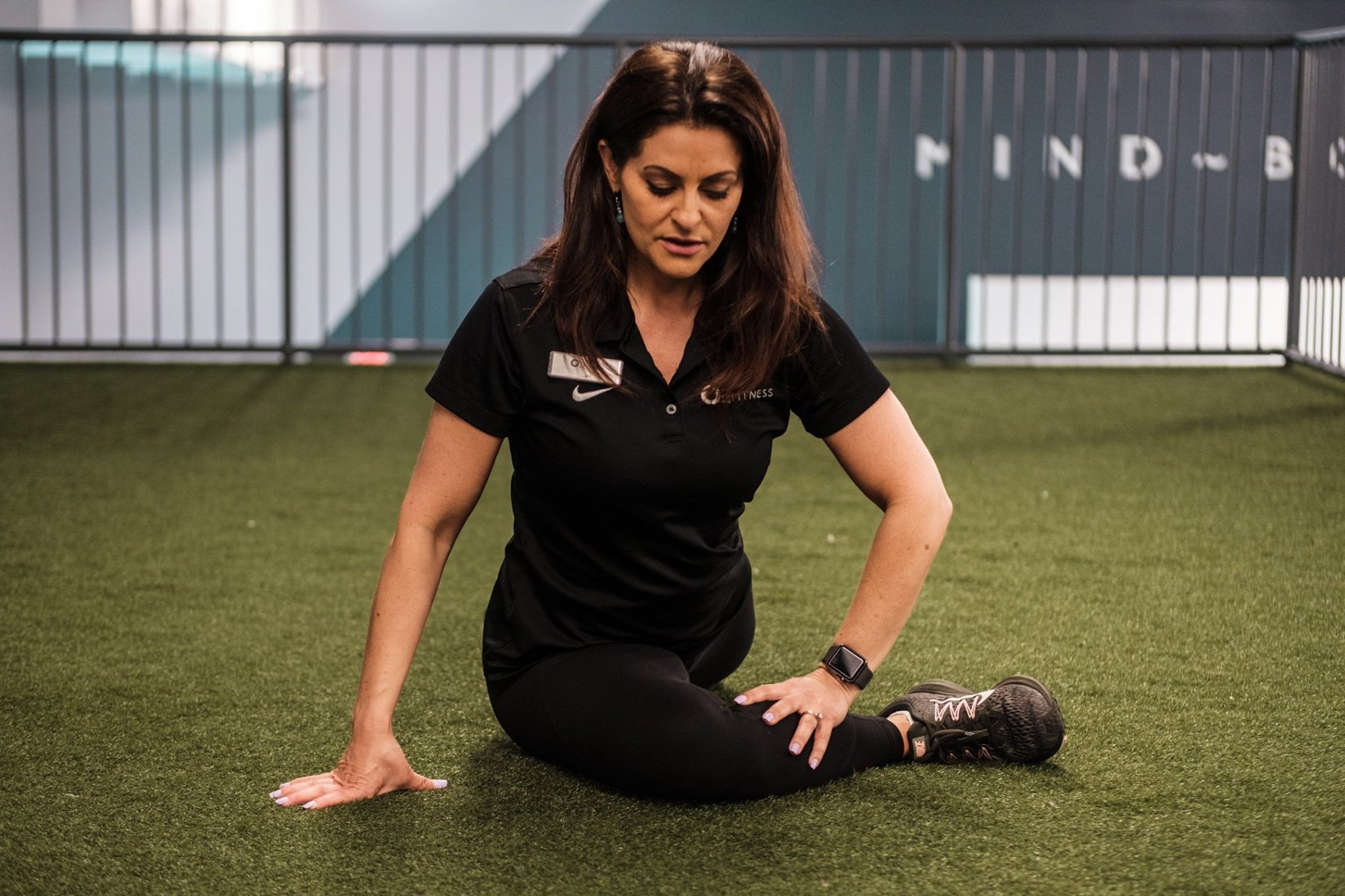
What is the IFPA Tai Chi Instructor Certification?
The IFPA Tai Chi Instructor Certification is a specialized program designed to equip fitness professionals with the skills and knowledge necessary to teach Tai Chi, an ancient Chinese martial art known for its health benefits, including stress reduction, improved balance, flexibility, and overall mind-body wellness. This certification covers Tai Chi principles, movement patterns, breathing techniques, and how to structure classes for various skill levels. It’s ideal for personal trainers, group fitness instructors, and wellness coaches interested in offering Tai Chi as a holistic fitness option to their clients.
Is the IFPA Tai Chi Instructor Certification worth it?
Yes, the IFPA Tai Chi Instructor Certification is highly valuable, especially in today’s fitness industry, where there’s a growing demand for holistic and low-impact exercise options. Tai Chi appeals to a broad demographic, including older adults and individuals seeking stress relief and gentle physical activity. This certification can diversify your teaching repertoire, attract a new client base, and enhance your ability to promote overall wellness.
Who should get the IFPA Tai Chi Instructor Certification?
This certification is particularly suitable for:
- Fitness professionals looking to incorporate holistic and mindful exercise options into their service offerings.
- Yoga and Pilates instructors seeking to expand their skill set with another form of mind-body practice.
- Wellness coaches and health practitioners interested in integrating Tai Chi into wellness programs for stress reduction and mental health.
- Anyone with a passion for Tai Chi wishing to share its benefits through structured instruction.
How difficult is the IFPA Tai Chi Instructor Certification exam?
The IFPA Tai Chi Instructor Certification exam is designed to be challenging, reflecting the depth of understanding required to teach Tai Chi effectively. It assesses knowledge of Tai Chi principles, movement sequences, teaching methodologies, and safety considerations. Success in the exam requires comprehensive study, practice, and a deep appreciation for the nuances of Tai Chi.
How credible is IFPA?
The IFPA is well-regarded in the fitness industry for offering a wide range of credible and scientifically-backed certification programs. The Tai Chi Instructor Certification is developed to meet IFPA’s high standards, ensuring that certified instructors are well-prepared to teach Tai Chi with a strong foundation in its traditional principles and modern applications to fitness and wellness.
How many people pass the IFPA Tai Chi Instructor Certification exam on the first try?
While the IFPA does not publish specific pass rates for the Tai Chi Instructor Certification exam, candidates who thoroughly engage with the course content and dedicate time to practicing Tai Chi are generally well-equipped to pass on their first attempt.
What is the pass rate of the IFPA Tai Chi Instructor Certification exam?
The IFPA does not disclose the pass rates for their Tai Chi Instructor Certification exam. However, a focused approach to studying the philosophical and practical aspects of Tai Chi, combined with regular practice, can significantly improve the likelihood of passing.
How does IFPA compare to other organizations for Tai Chi instructor certification?
When comparing the IFPA to other organizations offering Tai Chi instructor certifications, it’s important to consider the curriculum’s comprehensiveness, the emphasis on authentic Tai Chi principles, and the certification’s recognition within both the fitness and Tai Chi communities. The IFPA’s Tai Chi Instructor Certification is notable for its balance of traditional Tai Chi philosophy with practical teaching strategies, making it a valuable choice for fitness professionals.
Is the IFPA Tai Chi Instructor Certification test open book?
Typically, the IFPA Tai Chi Instructor Certification exam is conducted without the use of reference materials, requiring candidates to demonstrate their internalized knowledge of Tai Chi principles, movements, and instructional techniques.
How many times can you fail the IFPA exam?
IFPA allows candidates who do not pass the Tai Chi Instructor Certification exam to retake it, following specific retake policies that include any applicable fees and the waiting period required between attempts.
What can I do with an IFPA Tai Chi Instructor Certification?
With this certification, you can:
- Lead Tai Chi classes in fitness centers, wellness retreats, community centers, and healthcare facilities, catering to diverse groups seeking low-impact, mindful exercise.
- Integrate Tai Chi into personal training or coaching sessions as a complementary practice to enhance balance, flexibility, and mental well-being.
- Develop specialized Tai Chi programs aimed at stress reduction, injury rehabilitation, or senior fitness.
- Promote the benefits of Tai Chi through workshops, seminars, and community events, contributing to the holistic wellness of your clients.
How much does the IFPA Tai Chi Instructor Certification cost?
The investment required for the IFPA Tai Chi Instructor Certification may vary, depending on factors such as course materials, potential workshops, and the examination fee. Interested individuals should consult the IFPA’s official website or contact the organization directly for the most accurate and up-to-date pricing information.
What are the best personal training certifications?
The best personal training certifications are distinguished by their comprehensive content, practical training applications, and broad industry recognition. Alongside specialized certifications like the IFPA Tai Chi Instructor Certification, other esteemed certifications include:
- NASM Certified Personal Trainer (CPT), renowned for its holistic approach and emphasis on functional fitness.
- ISSA Certified Personal Trainer, which provides a broad curriculum covering fitness, nutrition, and business aspects of personal training.
- ACE Certified Personal Trainer, known for its client-centered and behavior change-focused approach.
- NSCA Certified Strength and Conditioning Specialist (CSCS), ideal for those concentrating on performance and strength conditioning.
Selecting the right certification depends on your career aspirations, the populations you aim to serve, and your specific interests within the fitness industry, ensuring you’re well-prepared to provide effective and engaging fitness guidance.
